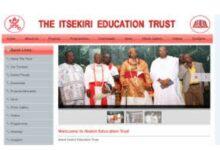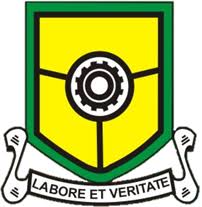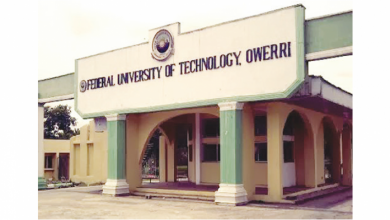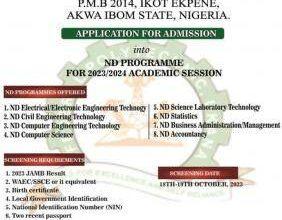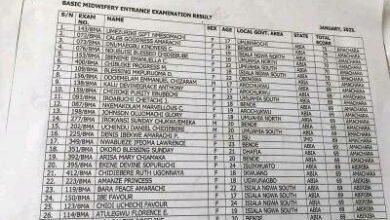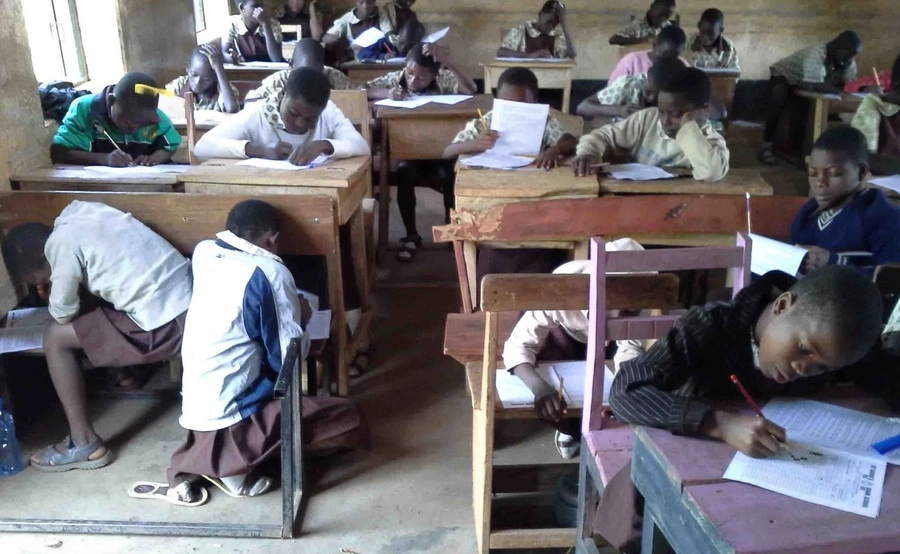
10 Factors That Influence Education in Nigeria
Factors That Influence Education in Nigeria – Education can be referred to as the formal or informal process of acquiring values, knowledge, beliefs, and skills. It can also be a self-directed process and can involve learning through experience or observation.
In Nigeria, the body in charge of Education is the Ministry of Education and the Nigerian educational system is divided into three levels: primary, secondary, and tertiary. Nigeria’s educational system is patterned after the British system, and the curriculum includes various subjects such as English, mathematics, Civic education, science, etc.Factors That Influence Education in Nigeria
👉 Relocate to Canada Today!
Live, Study and Work in Canada. No Payment is Required! Hurry Now click here to Apply >> Immigrate to CanadaThe quality of education in Nigeria has been a subject of concern, However, the government has enforced several policies aimed at enhancing the quality of education in the country, however, one of its major problems has remained the low allocation it receives from the yearly budget.
Read Also: 10 Factors that Influence the Development of Broadcasting in Nigeria
What is Education
Education is the process of gaining knowledge, habits, and values through means, such as teaching, research, or personal study. The learning can take place in a formal or informal setting or can even be in nature. Education can be provided by various institutions such as colleges, or universities, or it can be self-directed by online study. The main goal of education is to sharpen the abilities and knowledge of individuals and to help prepare them for life and work in general. JAMB Portal
Read Also: 10 Factors Affecting Contraceptive Use in Nigeria
History of Education In Nigeria
Education in Nigeria can be traced back to the pre-colonial era when traditional education dominated the education scene. This education taught the cultures and traditions of the people.
As the British took Nigeria as a colony, a formal system of education was introduced to prepare Nigerians to occupy administrative offices in the British colonial government.
In 1960, after Nigeria’s independence, the Nigerian government took some steps to improve education in the country. One such is the policy on education which was formed in 1977 and aims to provide free and compulsory primary education and to enable more access to other levels of education.
Read Also: 10 Factors Affecting Nigerian Economy
Despite these efforts, which may be considered laudable to an extent, the quality of education in Nigeria has remained a challenge, with issues ranging from poor management to, a lack of infrastructure, etc. However, the government has implemented several policies and we hope this quality of education in Nigeria meets up with the standard of other nations of the world.Information Guide Nigeria
👉 Relocate to Canada Today!
Live, Study and Work in Canada. No Payment is Required! Hurry Now click here to Apply >> Immigrate to CanadaType Of Education In Nigeria
These types of education can be distinguished based on their content, mode of delivery, and aim. Some of the types of education include: NYSC Portal
- Formal education: Formal education is a type of education delivered by institutions such as universities, schools, or colleges, and it follows a patterned curriculum. This kind of education is usually a necessity and is intended to provide individuals with the requisite skills and knowledge they need to succeed in their chosen profession.
- Informal education: Informal education is acquired through everyday experiences, such as learning from peers, family, and friends. The media also provides a means of informal education. It is not structured or follows a patterned curriculum, but it can still provide individuals with valuable skills, experiences, and knowledge.
- Distance education: Distance education is delivered through online space or correspondence courses. It makes it possible for individuals to learn from anywhere they are located and at any time.
- Special education: Special education is a type of education designed for challenged individuals with special needs. Examples are those with learning disabilities or physical or mental challenges.
Aims and Objectives of Nigerian Education
Education in Nigeria aims to provide individuals with the knowledge and skills they need to be productive in their work. Some of the main aims and objectives of education in Nigeria include:
- Improves the intellectual and cognitive abilities of individuals, improves their critical thinking ability, and enables them to make informed decisions.Do Not Drag Newsmen into Your Politics, Kogi NUJ Cautions Politicians
- Promoting national unity and integration among individuals of various cultures
- Inculcating moral values into the learners and teaching them their civic responsibility and how they can contribute their quota to national development.
- Nigerian education aims to make learning accessible to all, irrespective of, ethnicity, gender, or social status.
- To enhance and polish the potential of individuals so that they can contribute positively to society.
Read Also: 10 Factors That Influence Child Development
Factors that Influence Education in Nigeria
Some factors that influence education in Nigeria include
- Socio-economic conditions: Socioeconomic factors such as family poverty, unemployment, and lack of essential needs can negatively impact a child’s ability to attend school and perform optimally.
- Cultural and traditional practices: some cultural practices, such as early marriage and gender discrimination, can prevent children from attending school.Good Morning Love Message
- The cultural background of the student: Most students especially in the Northern and remote areas come from backgrounds that do not value education, making it difficult for them to take learning seriously.
- Ethnic diversity: Nigeria is populated with different ethnic backgrounds, which can make it difficult for educational policies and practices to thrive.
- Insecurity in some parts of the country: Insurgency can disrupt education and make it difficult for children to attend their various institutes of learning, or for teachers to do their work.
- Poor teacher salaries: inadequate funding for education in Nigeria has led to an acute shortage of educational materials. This also affects staff morale as seen by the persistent ASUU strikes and protests.
- Poor Parental involvement: These days, parents have become so busy to involve in their children/ward’s education and that can negatively impact their academic performance.
- Outdated curriculum and examination system: The educational curriculum in Nigeria is deficient and calls for a total overhaul as it has been criticized for not having the capacity to prepare students for the 21st century.Chelsea manager news: Mykhailo Mudryk reveals his favourite for next boss
- Distance to schools and other learning centers: This is mostly for rural areas. The distance to schools and lack of means of transport can be a major challenge.Romantic Love Messages
- Teachers’ qualifications and training: The quality of teachers also determine the quality of education in Nigeria. If most teachers in Nigeria lack the qualifications and training needed to provide good education, the students will be half baked and this is detrimental to the overall success of the nation.
Read Also: 10 Factors Affecting Business In Nigeria
Conclusion
In conclusion, the education system in Nigeria educational system is faced with numerous challenges that can impact the quality of education and the ability of students to perform at their best. These challenges include but are not limited to, poor quality of education, the socio-cultural background of students, ethnic diversity, outdated curriculum and examination system, distance to schools, lack of transportation, etc. Therefore the challenges must be addressed so that the education system in Nigeria can be improved and all students have access to good, optimal, and robust education.
Check JAMB RESULT
Check and Confirm: How much is Dollar to Naira
